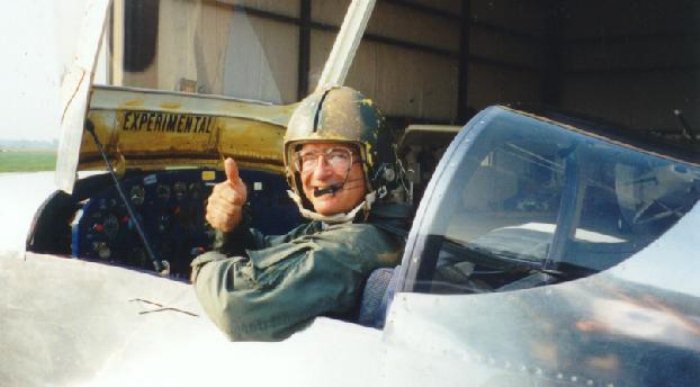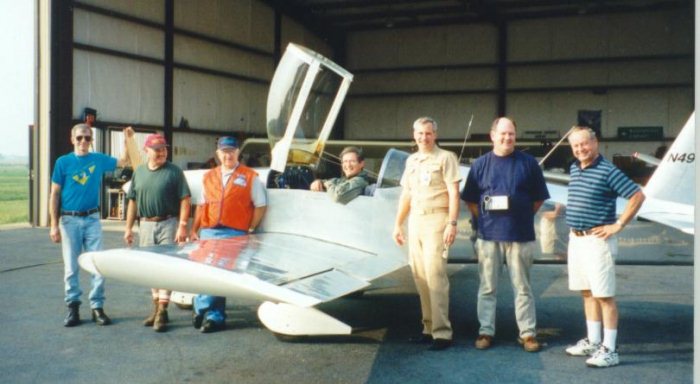|
|
For my entire test flight phase, I wrote my old Air Force
Nomex flight suit and gloves plus the helmet that I flew through Southeast Asia
conflict with.
Photos of my first flight, with my "crash crew" of six,
three stationed off each end of runway with fire extinguisher and crash
axe. You'll have to remember that to my knowledge at that time (before I
knew of Tracy Crook), nobody had shown the rotary was a viable aircraft engine -
fortunately for me it is.
Sent: Tuesday, February 15, 2011 8:15 PM
Subject: [FlyRotary] Re: in-flight fire podcast
I wear an old military nomex flight suit and gloves.
And parachute. No more sneakers for me.
I went out and tuned the engine again today. It ran very well where it was,
but I'm trying to get the map addresses to around the mid-range area. So, I went
to mode 3 and adjusted it to set the injector rate down a bit. I have a
mid-2005 version of the EC2, so I assume that mode 3 affects all map
addresses. I bolixed it up again, and it started to rain, so I figured I'd go
back and go back to the factory settings and start over. , when it was clear out
and I didn't have to muck about in the wet. I'm getting better at tuning this
thing. We won't have any good flying weather for about a week, so I'm not in a
real hurry right now.
Brian Trubee
-----Original
Message----- From: Tracy <tracy@rotaryaviation.com> To: Rotary
motors in aircraft <flyrotary@lancaironline.net> Sent: Tue, Feb 15,
2011 5:03 pm Subject: [FlyRotary] Re: in-flight fire podcast
Thought about this a
little and ended up with Piloti Nomex lined driving shoes. Very comfy
too. Tracy
On Tue, Feb 15, 2011 at 6:52 PM, Marc Wiese <cardmarc@charter.net>
wrote:
Interesting, although
I fail to see the FAA reason for the fire…..?
Although twenty minutes in
length, I thought this was worth passing along to my
colleagues.
A couple of things about
this incident caught my attention.
There was no fire
extinguisher on the aircraft. The instructor seemed to gloss over this
point very quickly yet I suspect it could have caused a much-better outcome
had it been there, reachable, usable and of sufficient capacity to knock the
fire down.
The instructor's shoe
melted in the flames and he makes reference to "plastic' a couple of times,
yet he was able to put his cotton-sock-covered foot back into the flames onto
the rudder pedal to maintain the steep slip, after his student was able to
pull the melting shoe off his foot. Most flying instructors wear some
form of a running shoe, even the CFI's that I have met.Many, if not most,
pilots that I know wear synthetic-material shoes when they are flying, for
understandable reasons of comfort and flexibility. That doesn't mean that
wearing something that is either flammable or will melt to your foot is
necessarily a good thing. The fact that a thin, cotton sock afforded him more
fire protection than his entire shoe should be telling.
At Skyquest, for some
reason, half the instructors wear leather shoes, completely at odds with other
schools.
I am guilty, however, of
polishing my flying shoes.
when I pointed out the
style of dress evident in the T-28 formation training video- wearing Nomex
flying suits and gloves but with the sleeves rolled up to the elbow- my
instructor wryly observed to only leave exposed what parts of you that
you want barbequed...

9F81.jpg

9F91.jpg
|
|